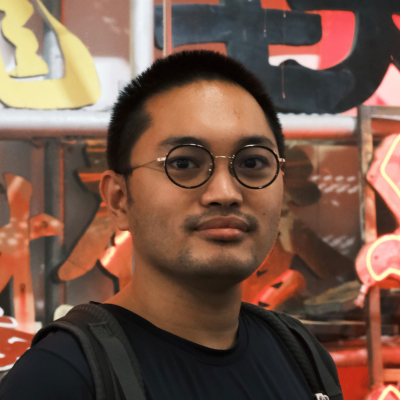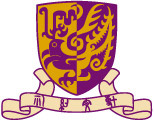
A Filipino Scholar's Journey from Manila to The Chinese University of Hong Kong
For Josef Adriel “Jad” de Guzman, what started as a casual vacation to Hong Kong would eventually transform into a defining chapter of his academic career at CUHK. Walking through Central district on a Sunday, he found himself captivated by the vibrant Filipino community that gathered there—a moment that would later shape his research path as a postgraduate student at The Chinese University of Hong Kong.
Like many aspiring international students in Hong Kong, Jad's journey to graduate school wasn't straightforward. During his undergraduate years studying Behavioural Sciences, he explored various disciplines before finding his true calling. “Of all these three disciplines, anthropology was really the course I identified with the most,” he reflects, describing the moment that would eventually lead him to pursue graduate school opportunities.
His passion for anthropological research was cemented during a transformative experience with the Ayta of Zambales, an indigenous community near Mount Pinatubo back in his hometown in the Philippines. Living alongside them for several weeks, Jad observed their unique migratory patterns between mountain and urban environments—an experience that would later inform his approach to studying migration patterns in Hong Kong.
Making His Mark in CUHK Graduate Programmes
At CUHK, Jad's research took on new dimensions as he delved into the intricate relationship between Filipino migrants and their food culture in Hong Kong. His work revealed a diverse community that extended far beyond domestic workers, encompassing professionals across various sectors.
“It's only after doing my fieldwork and looking at the ways in which these Filipino migrant domestic workers spend time in Hong Kong, where they gather, where they go, that I began to see the mark of the Filipino culture that you have in Hong Kong that's found in these restaurants and grocery stores,” Jad explains. His innovative research methodology combined fieldwork, food diaries, and photography to paint a comprehensive picture of daily life for Filipino migrants.
The research opportunities at the University have proven invaluable for Jad's academic growth. “My supervisor and to a larger extent, the entire department, were very supportive,” he shares. The collaborative atmosphere between faculty and graduate students has fostered an environment ripe for intellectual exchange.
Through initiatives like the CUHK Philippines Interdisciplinary Reading Group, Jad has expanded his academic horizons. “A lot of the discussions we had informed how I'm writing now. I'm pulling some influences from philosophy. I'm pulling some influences from cultural studies,” he notes. These experiences, combined with CUHK's extensive resources—from well-equipped libraries to conference funding and professional workshops—have created an enriching student experience.
Living the Research through Hong Kong Student Life
For many international students in Hong Kong, adapting to a new culture can be challenging. But for Jad, his position as both researcher and migrant has offered unique insights. His time as a CUHK student has challenged his preconceptions about the Filipino diaspora.
“I used to think that Filipinos here were really starved for Filipino cuisine—that we must be homesick and missed the food back in the Philippines. But then I realised that that's not necessarily the case because again, it's actually quite accessible if you know where to look,” he reflects.
Through his immersion in the local Filipino community, Jad has witnessed first-hand the strong support networks that help migrants create a home away from home. These personal observations have added depth to his academic research, illustrating the value of experiential learning in postgraduate studies.
Building a Future in Academia
As he progresses through his graduate school journey, Jad's aspirations are clearly defined. “My main goal is to join the department so I can teach and conduct research,” he shares. His experience as a teaching assistant at CUHK has provided valuable preparation for this path, especially through his work with a diverse range of students.
But his vision extends beyond the classroom. Recognising that academic research should translate into real-world impact, Jad plans to engage with NGOs and volunteer organisations supporting migrant domestic workers. This commitment to practical application demonstrates the broader potential of research opportunities at CUHK.
For Filipino students contemplating studying at CUHK, Jad's advice is both practical and encouraging. “Hong Kong—and CUHK in particular—has one of the most generous offers for graduate students in terms of the support it gives, not just the overseas share I mentioned earlier, but also the actual stipend. It gives you more than enough to cover the cost of living in Hong Kong and allows you to focus on your studies.” His perspective sheds light on the financial realities of student life, offering reassurance to those weighing their options.
Jad's journey from the Philippines to The Chinese University of Hong Kong has been marked by a passion for anthropology, a deep exploration of Filipino migration, and the unwavering support of the University and its community. His experiences as part of the international student community have not only enriched his research but have also fostered a strong sense of belonging within the Filipino community in Hong Kong.



